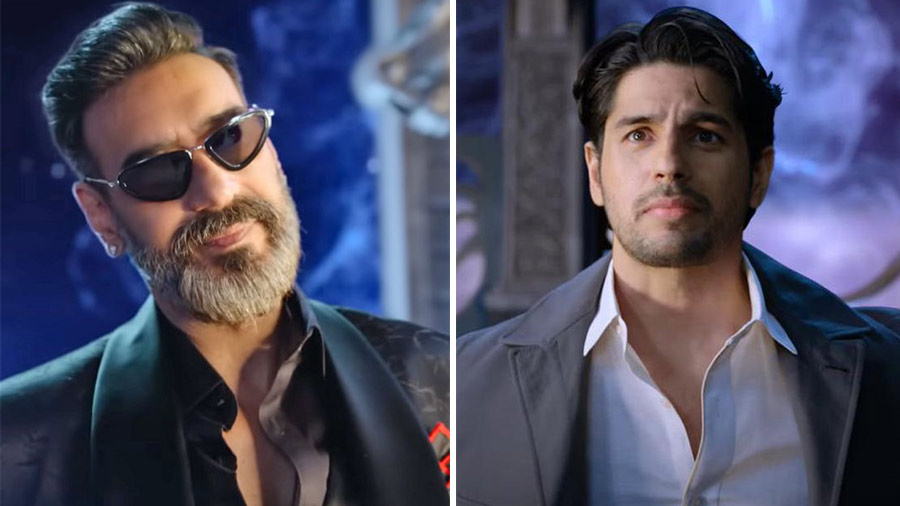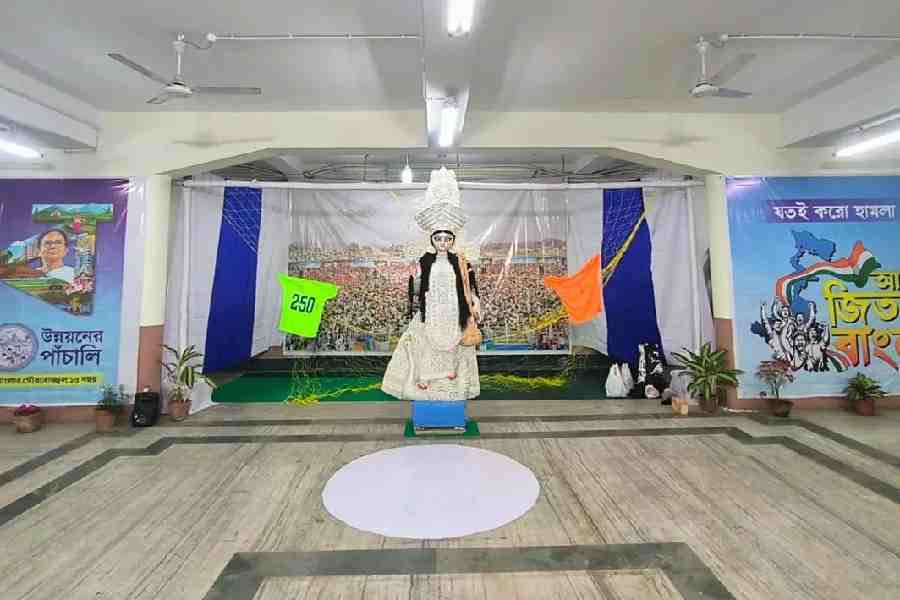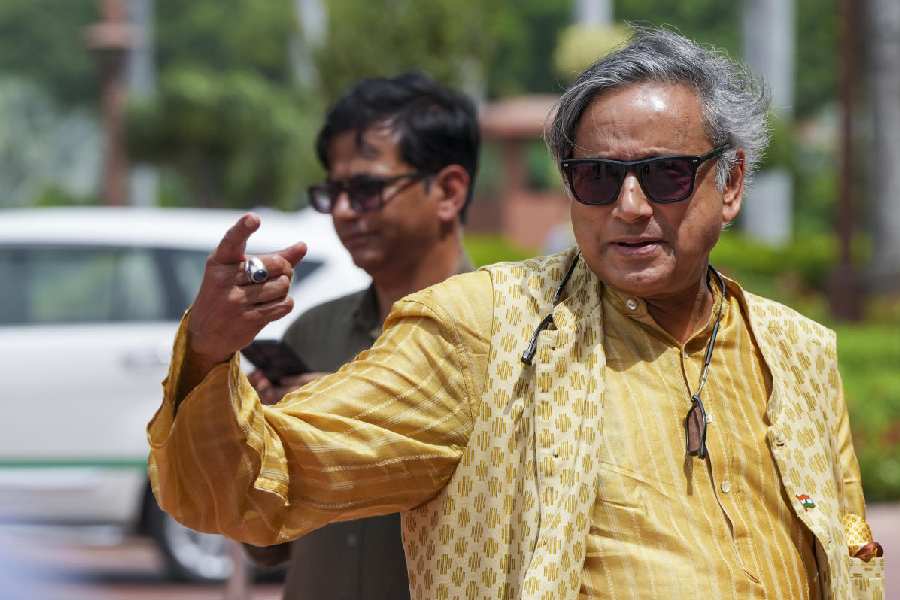Thank God — starring Ajay Devgn, Sidharth Malhotra and Rakul Preet Singh — is a light-hearted comedy drama directed by Indra Kumar that packs a social message along with some scintillating dance moves, courtesy Nora Fatehi. However, the execution falters and you feel like you’re stuck in a dated premise from the late ’90s.
Story about seven deadly sins
Ayaan Kapoor (Sidharth Malhotra), a broke real estate agent, meets with an accident. He wakes up in Yamlok, where he must play the ‘Game of Life’. The tasks for this game are set by CG (Ajay Devgn), the gatekeeper of heaven. If Ayaan manages to collect more white balls than black balls in this game, he can return to Earth. Or else, he will be banished to hell.
The tasks that Ayaan must complete in order to save himself are a spin-off of the seven deadly sins — anger, greed, jealousy, delusion, pride, envy and lust. CG puts Ayaan in various real-life situations, and how he reacts in these circumstances will determine his future.
Comedy with a social message
In a feel-good vein, Thank God reminds the audience of the value of family in one’s life. Ayaan wants to sell his house so that he can pay off his debts. The sequences where he takes prospective buyers on a tour around the house are rib-tickling. The comedy is situational, like most of Indra Kumar’s earlier works. There is an element of satire in scenes depicting a desperate Ayaan trying to woo Lord Hanuman.
CG’s dialogues are laced with sarcasm as he takes Ayaan to task for his actions. In a subtle reference to the popular game show Kaun Banega Crorepati, hosted by Amitabh Bachchan, CG claims a tall superstar stole the idea of game shows from his ‘Game of Life’.
In another scene, CG is confronted by Ayaan, who believes this is all a grand set-up. He demands to know why everyone in Yamlok is wearing modern clothes. CG immediately changes to traditional Indian attire and addresses Ayaan in Sanskrit. When the latter fails to understand what he is saying, the demigod says, “See, this is why we stay like this, so you guys can understand.”
Amidst all the fun, there’s some food for thought. In his zeal to earn a quick buck, Ayaan ignores his real wealth — his family.
Ajay Devgn and Sidharth Malhotra keep one entertained
Ajay Devgn is spot on as the no-nonsense demigod who will send you to hell at the tiniest of transgressions. Sidharth makes his unscrupulous character, who wouldn’t mind causing trouble and blaming it on others, believable. Ajay and Sidharth have great on-screen chemistry as CG torments Ayaan in order to make the latter conversant with life lessons. However, both the characters are one-dimensional and lack depth and Ajay, especially, remains underutilised.
Rakul Preet Singh is earnest as Ayaan’s supportive wife Ruhi. Dealing with an out-of-work husband requires immense patience, but Ruhi manages to tackle the situations with her charming innocence. Kanwaljeet Singh and Seema Pahwa have cameos as Ayaan’s parents, who do justice to their parts.
Nora Fatehi shakes a leg
In a short but sparkling cameo, Nora Fatehi leaves an impression with her dance moves to the Hindi remake of the viral Sinhalese song Manike mage hithe, sung by Yohani, as she tries to seduce a mesmerised Ayaan. Sparks fly as the duo hit it off, and Siddharth-Nora’s chemistry is sizzling.
Poor execution
Despite having an interesting premise, and really likeable performances, Thank God falls short of your expectations because of the poor execution. The theme at the heart of the film is dated and stuck in the ’90s. The makers refuse to scratch beyond the surface and end up creating black-and-white characters, without any shades of grey. The divine intervention in the end is too simplistic and convenient.











